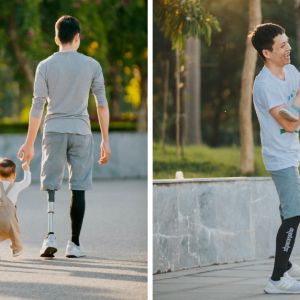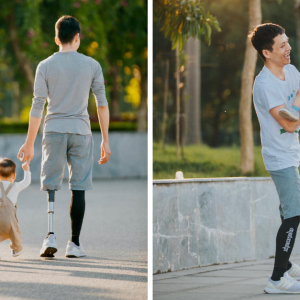A remarkable incident unfolded aboard a Turkish Airlines flight, leaving passengers in awe as a woman, Nafi Diaby, gave birth to a beautiful baby girl at an astonishing altitude of 42,000 feet. The Boeing 747 aircraft was en route to Burkina Faso from Conakry, Guinea when Nafi Diaby began experiencing labor pains. Despite the challenging circumstances, the airline’s attentive crew swiftly came to her aid, ensuring a safe delivery of the baby girl, named Kadiju.

Passengers and cabin crew members joined forces to support the 28-week pregnant woman throughout the eventful flight. Following the successful birth, the crew proudly posed for photographs with the newborn, beaming with joy alongside the captain.

The baby girl was immediately attended to by the airline’s staff, who provided her with essential medical care, wrapping her snugly in a blanket. Upon landing, the mother and daughter were swiftly transported to the nearest hospital in Ouagadougou, where medical personnel thoroughly examined them. Fortunately, both mother and baby are in excellent health and recovering well.

This heartwarming incident, with a happy ending, is a tale that will be shared for years to come. The efficiency and attentiveness of the Turkish Airlines hostesses played a significant role in ensuring the positive outcome.
In recognition of their exceptional efforts, the airline expressed gratitude to its dedicated staff on Twitter, sharing a photo of the smiling stewardesses cradling little Kadiju in their arms, accompanied by the caption: “Welcome aboard, princess! Applause goes to our cabin attendants!”

While airlines generally permit women in advanced stages of pregnancy to fly, with no specific regulations in place, some precautions may apply. Typically, a doctor’s authorization is required beyond the 28th week of pregnancy.

Although rare, giving birth during a flight is not entirely unheard of. While the exact number of in-flight births remains unknown, recent estimates suggest there have been around 50 recorded cases. The first in-flight birth occurred in 1929, and the most recent case is that of little Kadiju, born on April 7.
One intriguing question arises regarding the nationality attributed to an unborn child born in-flight: what will be written in the passport’s “place of birth” section?
According to legal rules, the nationality will be based on the country’s airspace the aircraft was flying over during the birth. Consequently, passports of these unique children may feature imaginative descriptions such as “at sea” or “on a plane.” Regardless of the unconventional birth circumstances, what truly matters is their remarkable arrival into the world!





